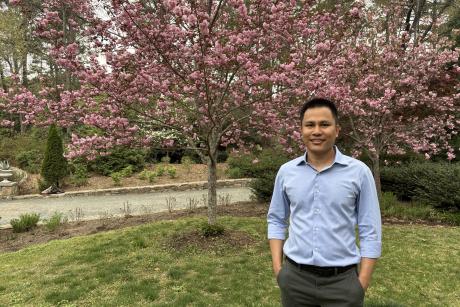
The sign outside of Mityana Hospital
Published June 26, 2013, last updated on October 5, 2017 under Voices of DGHI
by John Davis
I have been in Uganda for almost three weeks now, and I feel as though I am learning something new about the barriers to seeking medical treatment with each passing day.
Before traveling to Uganda, I read extensively about the current health system in the country. A majority of people in Uganda receive care at a government-run hospital that provides free testing, diagnosis, and treatment. A limited supply of medication is available at government-run hospitals for free. People who can afford it seek care at private clinics, which generate revenue by charging patients for testing and treatment. Private clinics distribute some medication for free and other medication for a small fee. Throughout my investigation into the Ugandan health system, I read a lot about barriers to medical treatment such as distance required to travel to a health center, a lack of doctors and nurses, a lack of medication at government-run health centers, overcrowded hospitals, and several other barriers. I desperately hoped to get a glimpse of some of these barriers during my eight weeks in Uganda this summer.
Fortunately, I have been able to get a first-hand look into the health system in Uganda through visiting the local government-run hospital in Mityana. At least once a week I visit Mityana Hospital and tour the wards. Immediately when you walk through the front gate of the hospital, you notice clusters of individuals camped out on the grass either making food, sleeping, talking, or playing with small children (it is constantly sunny here and about 85 degrees almost every day). Then, taking a walk through the male inpatient ward one would notice several sick men laying on beds that are about an arm’s length apart. Similar to other wards at Mityana Hospital, there is absolutely no privacy for patients on the male ward. Each patient in the room most likely knows what is wrong with every other patient in the same room. At the dispensary, there may or may not be any medication available on a given day.
Seeing a doctor make an appearance in the hospital is quite a rare occurrence. One morning while in the pediatric ward, I asked one of the nurses where the doctor was. I asked her because I had not seen one on the floor all morning. This question turned into a long conversation about how Mityana Hospital, and other hospitals in Uganda, treat patients. The nurse told me that the doctors usually come to the hospital once or twice a week, and they rarely answer their phones for emergency situations. Almost all of the care is left up to the nursing staff. They are in charge of making decisions about treatment that nurses in America would never even think of making. Also, the nurse told me that she ends up working several hours more than what she is paid to work every week because there is simply not enough staff to take care of all the sick patients that make their way to the hospital.
I am also learning about the barriers to medical treatment through interviews I have been conducting for my research on malaria treatment in Naama, a very small town a few kilometers from Mityana. One of the questions I ask is intended to get a clear picture of why people in Naama delay seeking treatment for malaria when they have any of the characteristic symptoms of the disease. For some individuals, money is the primary barrier. Most people in Naama do not generate a steady income to allow them to spend a decent amount of money to get a ride to the closest health center. For others, they would rather avoid the health center completely and just treat the disease with drugs bought from the local pharmacy.
I am constantly amazed at what some people here must go through to receive medical care for a disease like malaria in Uganda. Witnessing the barriers to treatment here firsthand makes me appreciate the medical care I receive back in America so much more. I take the simple doctor’s appointment I have every once in a while completely for granted. I complain when I have to wait for perhaps 20 minutes for the doctor to come into the room after the nurse has taken my vital signs. What’s more, I get frustrated when the CVS pharmacy close to my home takes longer than expected to fill a prescription.
Although this sounds cliché, I definitely will not take the medical care I receive back home for granted in the future. Seeing what I have seen so far in my short three weeks in Uganda has made me appreciate what I have access to back in America.


